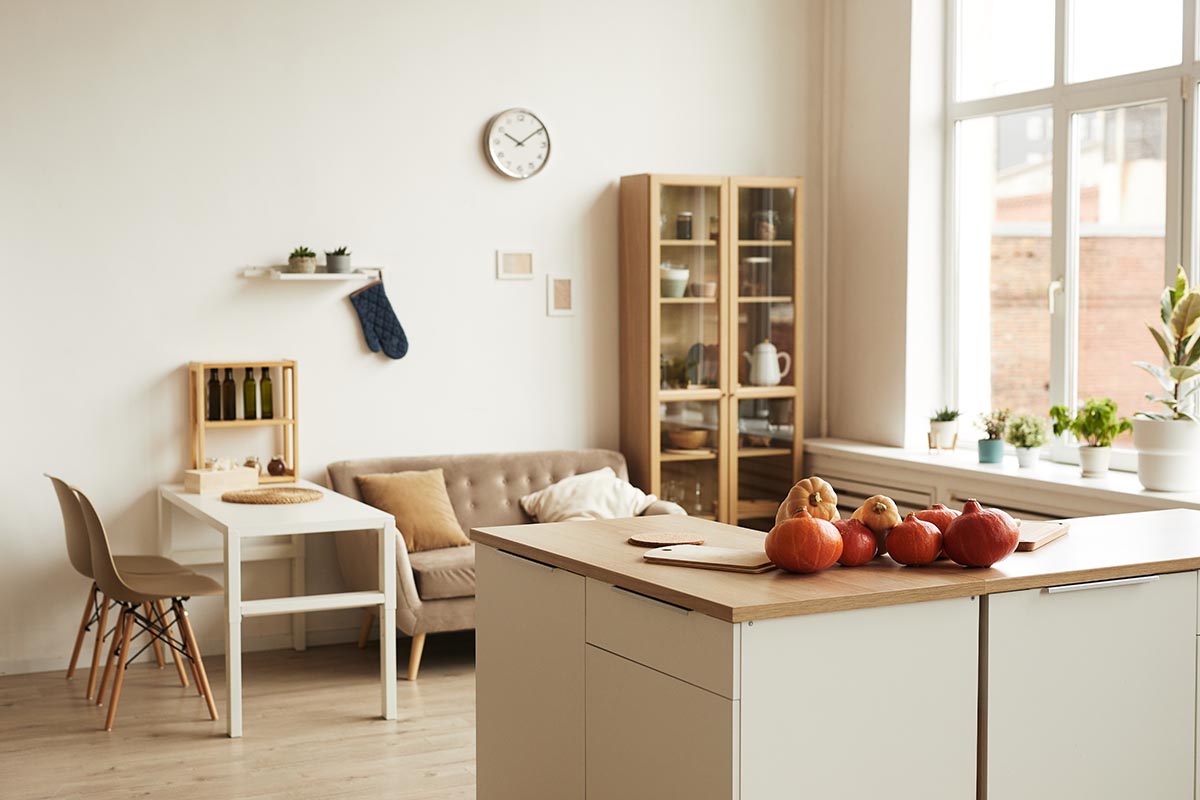
Enchanting culture, picturesque beaches, high-quality healthcare, and affordable real estate in Thailand draw many EU expats seeking new opportunities and a better quality of life. However, living in this country, like in any other, comes with its own set of advantages and disadvantages. Why do EU immigrants choose this tropical nation, and what local life aspects should they consider?
Content:
- Benefits of living in Thailand for EU citizens
- Visa opportunities
- Friendly population
- High-quality healthcare
- Diverse housing options
- Thai cuisine
- Presence of international communities
- International educational institutions
- European shops and restaurants
- Life in Thailand for Europeans
Benefits of living in Thailand for EU citizens

The positive aspects of life in Thailand include the following.
Visa opportunities
EU immigrants are allowed a visa-free stay in Thailand for up to 30 days. To stay longer, obtaining a TR visa is advisable, which is valid up to 60 days and can be extended by another 30 days. Additionally, the METV (Multiple Entry Tourist Visa) is available, offering validity for six months.
Obtaining a visa to extend your stay requires meeting certain conditions, such as:
- pursuing higher education or training courses – student visa;
- seeking employment – work visa;
- starting a business – business visa;
- marrying a Thai citizen – marriage visa;
- investing in the country's economy – investor visa under the Thailand Elite program.
To clarify visa requirements for EU citizens in Thailand, it's recommended to consult the official Thai embassy or consulate websites or relevant government portals.
Friendly population
Every foreigner arriving in Thailand for the first time is struck by the warmth and friendliness of the local people. Thais are constantly smiling, eager to assist, ready to answer any questions, and to spend their time showing visitors around local attractions.
High-quality healthcare
Local healthcare system offers high-quality services. Key advantages include skilled and knowledgeable staff, prompt medical examinations, and state-of-the-art equipment. Additionally, the staff in Thai medical facilities are friendly and polite.
Diverse housing options
If you are looking for luxury apartments in Thailand or budget-friendly minimalist flats, there is a vast array of housing options. Rental or purchase costs vary depending on location, neighbourhood, and type of property. As an example, a studio on the outskirts of Pattaya costs $200–300 per month, while in Jomtien, the price might range from $450–550 per month. The price of most affordable apartments in Pattaya, without premium amenities, can be $20,000–25,000. On the other hand, luxurious villas on Phuket Island can cost as high as $15.86 million.
Thai cuisine
Thai cuisine has gained worldwide popularity because of its use of fresh ingredients, including a variety of deliciously prepared vegetables, making the dishes both nutritious and healthy. Vegetarians can enjoy an extensive menu in local restaurants.
Presence of international communities
Thailand is home to a diverse array of international communities, making it a cosmopolitan destination for expatriates from around the world. In Phuket, expatriates often gather at popular spots like Patong Beach, Cafe Del Mar on Kamala Beach, Catch Beach Club on Bangtao Beach, and the reggae bar on Nai Harn Beach. Pattaya boasts its vibrant expatriate scene, with various communities forming welcoming enclaves throughout the city.
International educational institutions
Thailand boasts a wide range of international schools offering education in various languages, including English, French, German, and others, catering to the diverse expatriate community. In Pattaya, notable international schools include Tara Pattana, Garden, Regent's International School, and International School of Chonburi. Phuket is home to prestigious institutions like British International School, United World College Thailand, HeadStart International School, and Phuket International Academy.
These schools offer curricula ranging from the International Baccalaureate to British and American systems, ensuring a high standard of education. Additionally, there are numerous kindergartens and preschools in both Pattaya and Phuket, such as ABC International Nursery & Pre-school in Phuket and International School of Pattaya, providing early education with a global perspective.
European shops and restaurants
Pattaya and Phuket are well-equipped to cater to the diverse tastes of the European expatriate community. While specific European national cuisines may not be as prevalent as local or Asian options, there are a variety of restaurants and food courts in shopping centres that offer European-style dishes. In addition to international supermarkets like Foodmart, which stock a range of imported goods, there are also local markets and stores where one can find fresh produce and ingredients to prepare European meals at home.
In Phuket, shopping centres like Villa Market and Central Festival Phuket offer a selection of products, including European brands, although prices can be higher due to their focus on the expatriate market. Similarly, in Pattaya, shopping centres such as Central Pattaya and Terminal 21 provide a variety of dining options, including European and international cuisine, catering to the tastes of a diverse expatriate community.
Life in Thailand for Europeans

While Thailand offers many advantages for European expatriates, it's important to consider certain aspects of local life.
Language aspect
In Thailand, English proficiency varies widely. While professionals in business and tourism sectors often speak English, local vendors, taxi drivers, and service industry workers may not. Speaking Thai can be beneficial in daily interactions, although the language's unique pronunciation and tonal nature present a learning curve for newcomers.
Availability of products
Staples like vegetables, chicken, rice, eggs, fish, and fruits are readily available at affordable prices throughout the year. However, dairy and certain meat products can be scarce and more expensive. Cheese and cottage cheese are not commonly produced locally, and cow's milk is often found in powdered form. Alternatives like soy, corn, and coconut milk are widely available.
Living expenses
The cost of living of an individual in Thailand, excluding rent, averages around 500–600 USD per month. This includes approximately 60–70 USD for utilities, 200 USD for food, 30 USD for transportation, and 30–35 USD for internet and phone services. This is a basic estimate and does not include expenses for education, healthcare, clothing, dining out, etc. Meanwhile, the average salary (after taxes) is about 550 USD.
Job opportunities
Finding work in Thailand can be challenging for expatriates. There are restrictions on foreigners in certain industries, such as manufacturing drugs, food products, cigars, textiles, and musical instruments; processing precious stones and metals; making souvenirs, sculptures, and traditional Thai products; and creating sacred items with Buddha images. Export of such items is also regulated.
Job opportunities include freelancing, real estate and tour sales management, and service industry roles. Proficiency in English and basic Thai can be advantageous. Other potential roles include diving instructor, programmer, DJ, English teacher, chef, translator, salesperson, and nanny.
To start a business in Thailand, one needs a business visa, a minimum capital of around 55,000 USD (2 million Thai Baht), and to transfer at least 51% of the company shares to a Thai citizen.
Cost of medical services
A consultation with a general practitioner costs about 20–30 USD, with specialist consultations being more expensive. It is advisable to arrange for health insurance before arriving in the country.
Visa opportunities, friendly locals, quality healthcare, delicious cuisine, and developed infrastructure make it a popular destination in Southeast Asia for expatriates. However, it's important to understand that relocating requires preparation and adaptation. By considering these aspects, you can plan ahead, acclimate more quickly, and enjoy life in this tropical kingdom.

